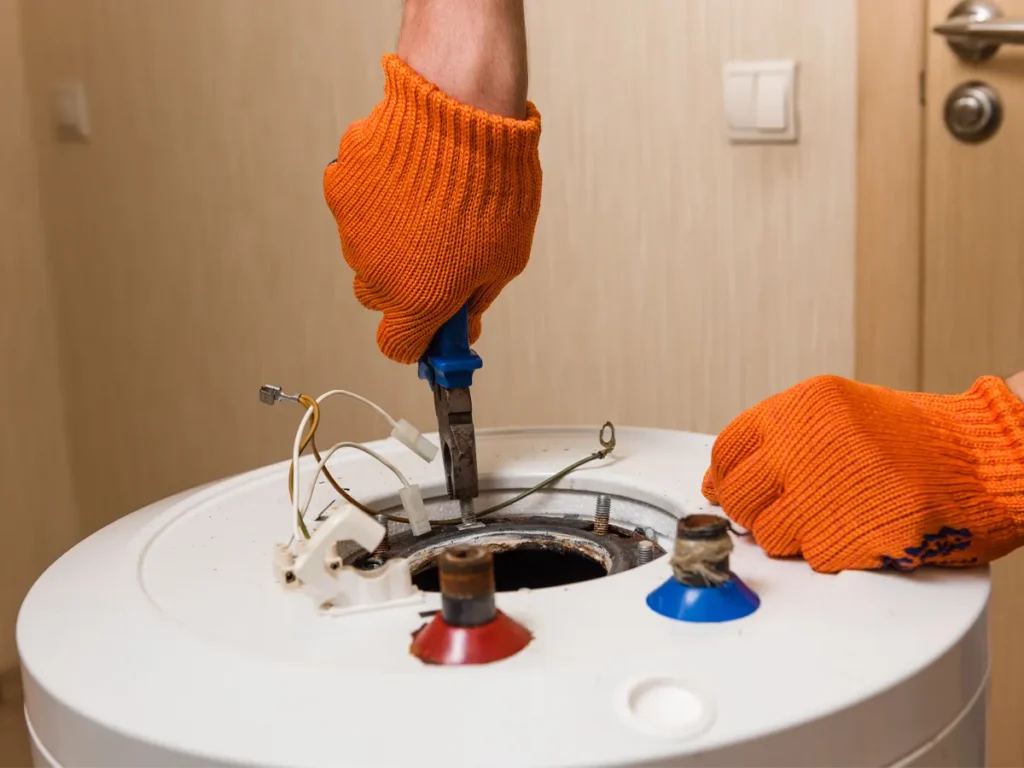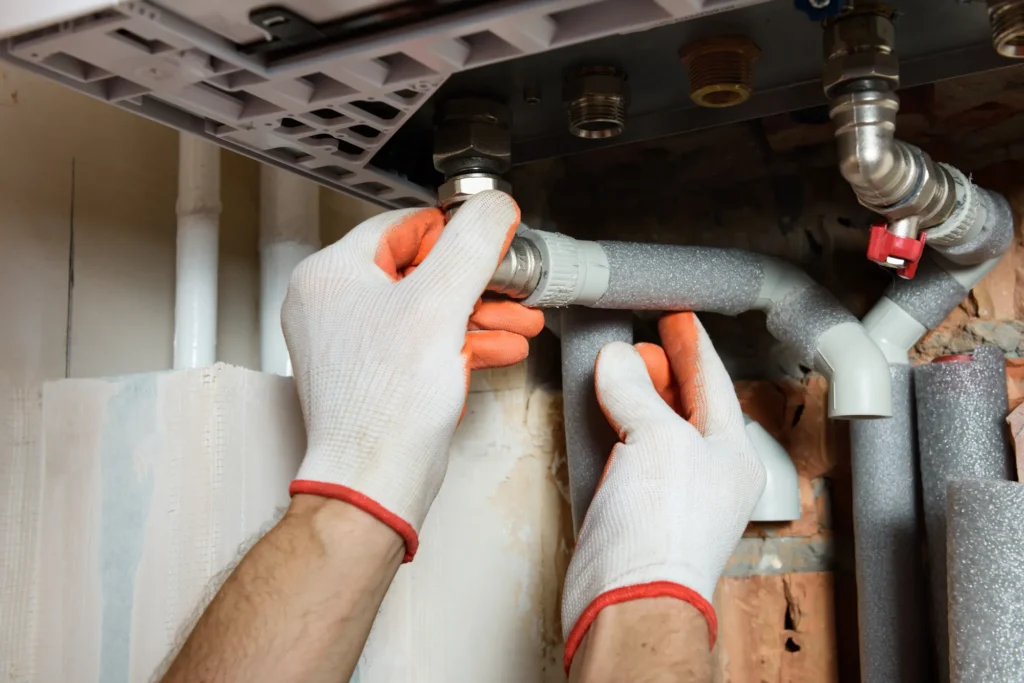We rarely think about our water heaters until something goes wrong. They’re the unsung heroes of our daily comfort, working quietly behind the scenes until trouble strikes. Recognizing early warning signs can save you from cold showers, prevent water damage, and help you avoid emergency repair calls. Taking a proactive approach ensures your household enjoys consistent hot water when you need it most.
Inconsistent Water Temperature
Have you ever jumped into what should be a relaxing shower, only to be surprised by sudden blasts of icy water or scalding heat? Your water heater is trying to tell you something. These temperature rollercoasters typically happen when sediment builds up in your tank, creating hot spots that lead to uneven heating.
We often see failing thermostats behind this problem too. When your thermostat malfunctions, it might shut off the heating element too early or fail to activate it when needed, resulting in unpredictable temperatures throughout your home. This inconsistency isn’t just annoying—it can be dangerous, especially for households with young children or elderly members.
If you’ve already tried adjusting the settings without improvement, it’s time to bring in a professional. A qualified technician can flush out that troublesome sediment, replace faulty thermostats, or address other issues before your system quits altogether.
Unusual Noises Coming From Your Tank
Your water heater should be seen and not heard. When it starts making rumbling, popping, or banging sounds, it’s usually because sediment has hardened at the bottom of your tank. Water gets trapped under this layer and, as it heats up, creates steam bubbles that burst through the sediment—hence those distinctive popping sounds.
Higher-pitched whining or screaming noises often signal restricted water flow or pressure building up inside your system. These sounds aren’t just annoying—they’re telling you that your water heater components are under strain, which can lead to premature failure. Think of these noises as your water heater’s way of crying for help.
A professional can determine whether a simple tank flush will solve the problem or if you need more serious repairs. Addressing these issues promptly can extend your water heater’s life and prevent costlier repairs down the road.
Rusty or Discolored Water
When you turn on your faucet expecting clear water but get something that looks like weak tea, your water heater is likely corroding from the inside. This type of corrosion typically happens when the sacrificial anode rod—designed to attract corrosive elements and protect your tank—has completely worn away.
For those with electric water heaters, discolored water might also mean your heating elements are breaking down. As these components deteriorate, they release particles that affect both the color and quality of your water while reducing heating efficiency. Beyond the unappealing appearance, this rusty water can stain fixtures and clothing.
We strongly recommend professional help at this stage, as internal corrosion can quickly lead to leaks. A technician can replace the anode rod or heating elements or determine if you need to consider a replacement. Quick action when you notice discoloration can prevent more serious problems.
Leaking or Pooling Water
Finding water around your water heater is a red flag you shouldn’t ignore. Even small leaks can signal failing components, connection problems, or tank deterioration. What starts as minor drips often precedes catastrophic tank failures that can cause significant water damage to your home.
Leaks commonly originate from loose connections, the temperature and pressure relief valve, or the drain valve. While we can often repair these issues, moisture appearing directly from the tank body usually means the inner tank has corroded through—a problem that requires complete replacement.
Please don’t attempt DIY repairs! Water heaters combine electricity or gas with water under pressure—not a safe combination for amateurs. A professional plumber can safely identify the source of leaks and recommend appropriate solutions that protect both your home and your family.
Reduced Hot Water Supply
Your water heater is struggling to keep up. This decreased capacity often happens when sediment accumulates, reducing the tank’s effective volume and insulating the heating element from the water.
For tankless systems, reduced output frequently comes from mineral scale building up in the heat exchanger. In both systems, the problem might also stem from a failing heating element that can’t generate enough heat anymore. Occasionally, your hot water needs may have simply increased over time.
Professional descaling and component testing can often restore your system’s performance. We can also help determine if your current water heater’s capacity matches your household needs or if you might benefit from upgrading to a more appropriately sized unit.
Age-Related Efficiency Decline

Most water heaters last about 8–12 years, with efficiency gradually declining as they age. If yours is approaching this range, you’ll likely notice longer heating times, higher utility bills, and more frequent minor issues as components wear out. These efficiency losses can add up significantly, sometimes costing you hundreds of extra dollars annually.
These efficiency problems often begin subtly—perhaps your dishwasher doesn’t clean as effectively, or you need higher shower temperatures than before. As components deteriorate and tanks develop scale, your water heater consumes more energy while delivering diminishing performance.
Rather than continuing to invest in repairs for an aging unit, consider talking with a professional about replacement options. Today’s water heaters offer significant efficiency improvements that can reduce energy costs while providing more reliable performance. We can help you evaluate whether repair or replacement makes more sense for your home and budget.
Remember, addressing water heater issues promptly not only ensures your comfort but can also prevent more expensive problems down the road. When in doubt, calling a professional is always the safest choice for these complex appliances.

